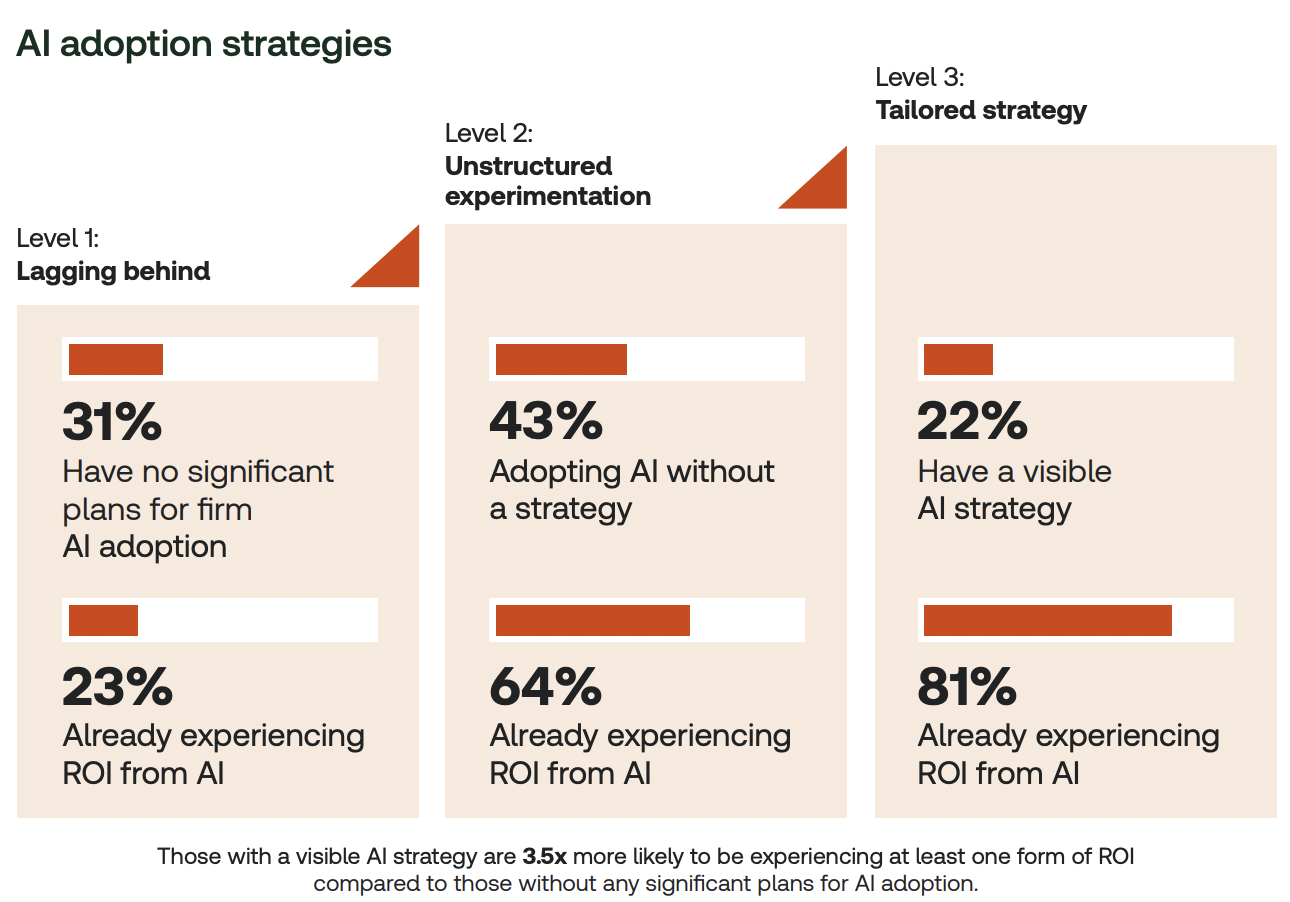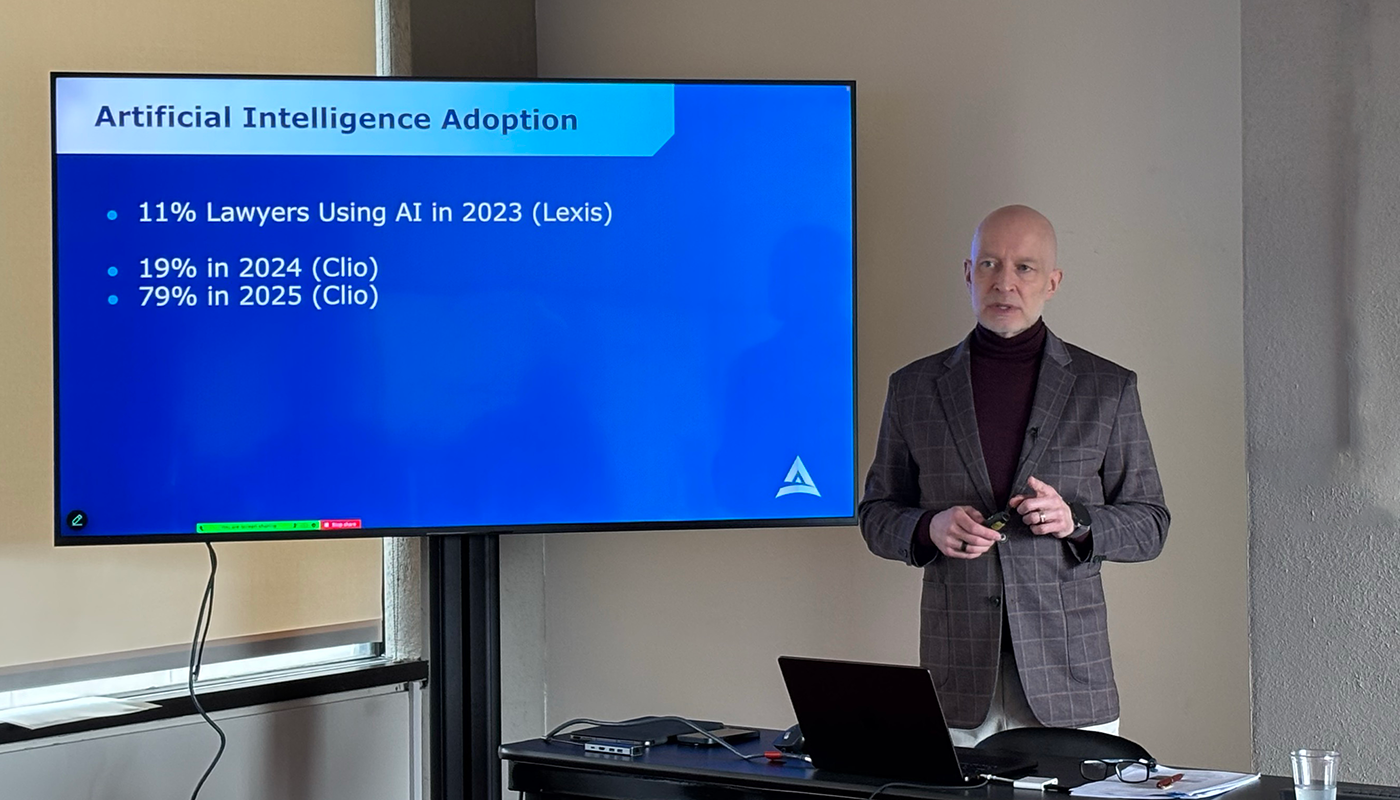Thomson Reuters CEO: Legal Profession Faces “Biggest Disruption in Its History”from AI — from lawnext.com by Bob Ambrogi
Thomson Reuters President and CEO Steve Hasker believes the legal profession is experiencing “the biggest disruption … in its history” due to generative and agentic artificial intelligence, fundamentally rewriting how legal work products are created for the first time in more than 300 years.
Speaking to legal technology reporters during ILTACON, the International Legal Technology Association’s annual conference, Hasker outlined his company’s ambitious goal to become “the most innovative company” in the legal tech sector while navigating what he described as unprecedented technological change affecting a profession that has remained largely unchanged since its origins in London tea houses centuries ago.
Legal tech hackathon challenges students to rethink access to justice — from the Centre for Innovation and Entrepreneurship, Auckland Law School
In a 24-hour sprint, student teams designed innovative tools to make legal and social support more accessible.
The winning team comprised of students of computer science, law, psychology and physics. They developed a privacy-first legal assistant powered by AI that helps people understand their legal rights without needing to navigate dense legal language.
Teaching How To ‘Think Like a Lawyer’ Revisited — from abovethelaw.com by Stephen Embry
GenAI gives the concept of training law students to think like a lawyer a whole new meaning.
Law Schools
These insights have particular urgency for legal education. Indeed, most of Cowen’s criticisms and suggested changes need to be front and center for law school leaders. It’s naïve to think that law student and lawyers aren’t going to use GenAI tools in virtually every aspect of their professional and personal lives. Rather than avoiding the subject or worse yet trying to stop use of these tools, law schools should make GenAI tools a fundamental part of research, writing and drafting training.
They need to focus not on memorization but on the critical thinking skills beginning lawyers used to get in the on-the-job training guild type system. As I discussed, that training came from repetitive and often tedious work that developed experienced lawyers who could recognize patterns and solutions based on the exposure to similar situations. But much of that repetitive and tedious work may go away in a GenAI world.
The Role of Adjunct Professors
But to do this, law schools need to better partner with actual practicing lawyers who can serve as adjunct professors. Law schools need to do away with the notion that adjuncts are second-class teachers.
It’s a New Dawn In Legal Tech: From Woodstock to ILTACON (And Beyond) — from lawnext.com by Bob Ambrogi
As someone who has covered legal tech for 30 years, I cannot remember there ever being a time such as this, when the energy and excitement are raging, driven by generative AI and a new era of innovation and new ideas of the possible.
…
But this year was different. Wandering the exhibit hall, getting product briefings from vendors, talking with attendees, it was impossible to ignore the fundamental shift happening in legal technology. Gen AI isn’t just creating new products – it is spawning entirely new categories of products that truly are reshaping how legal work gets done.
Agentic AI is the buzzword of 2025 and agentic systems were everywhere at ILTACON, promising to streamline workflows across all areas of legal practice. But, perhaps more importantly, these tools are also beginning to address the business side of running a law practice – from client intake and billing to marketing and practice management. The scope of transformation is now beginning to extend beyond the practice of law into the business of law.
…
Largely missing from this gathering were solo practitioners, small firm lawyers, legal aid organizations, and access-to-justice advocates – the very people who stand to benefit most from the democratizing potential of AI.
…
However, now more than ever, the innovations we are seeing in legal tech have the power to level the playing field, to give smaller practitioners access to tools and capabilities that were once prohibitively expensive. If these technologies remain priced for and marketed primarily to Big Law, we will have succeeded only in widening the justice gap rather than closing it.
How AI is Transforming Deposition Review: A LegalTech Q&A — from jdsupra.com
Thanks to breakthroughs in artificial intelligence – particularly in semantic search, multimodal models, and natural language processing – new legaltech solutions are emerging to streamline and accelerate deposition review. What once took hours or days of manual analysis now can be accomplished in minutes, with greater accuracy and efficiency than possible with manual review.
From Skepticism to Trust: A Playbook for AI Change Management in Law Firms — from jdsupra.com by Scott Cohen
Historically, lawyers have been slow adopters of emerging technologies, and with good reason. Legal work is high stakes, deeply rooted in precedent, and built on individual judgment. AI, especially the new generation of agentic AI (systems that not only generate output but initiate tasks, make decisions, and operate semi-autonomously), represents a fundamental shift in how legal work gets done. This shift naturally leads to caution as it challenges long-held assumptions about lawyer workflows and several aspects of their role in the legal process.
The path forward is not to push harder or faster, but smarter. Firms need to take a structured approach that builds trust through transparency, context, training, and measurement of success. This article provides a five-part playbook for law firm leaders navigating AI change management, especially in environments where skepticism is high and reputational risk is even higher.
ILTACON 2025: The vendor briefings – Agents, ecosystems and the next stage of maturity — from legaltechnology.com by Caroline Hill
This year’s ILTACON in Washington was heavy on AI, but the conversation with vendors has shifted. Legal IT Insider’s briefings weren’t about potential use cases or speculative roadmaps. Instead, they focused on how AI is now being embedded into the tools lawyers use every day — and, crucially, how those tools are starting to talk to each other.
Taken together, they point to an inflection point, where agentic workflows, data integration, and open ecosystems define the agenda. But it’s important amidst the latest buzzwords to remember that agents are only as good as the tools they have to work with, and AI only as good as its underlying data. Also, as we talk about autonomous AI, end users are still struggling with cloud implementations and infrastructure challenges, and need vendors to be business partners that help them to make progress at speed.
Harvey’s roadmap is all about expanding its surface area — connecting to systems like iManage, LexisNexis, and more recently publishing giant Wolters Kluwer — so that a lawyer can issue a single query and get synthesised, contextualised answers directly within their workflow. Weinberg said: “What we’re trying to do is get all of the surface area of all of the context that a lawyer needs to complete a task and we’re expanding the product surface so you can enter a search, search all resources, and apply that to the document automatically.”
The common thread: no one is talking about AI in isolation anymore. It’s about orchestration — pulling together multiple data sources into a workflow that actually reflects how lawyers practice.
5 Pitfalls Of Delaying Automation In High-Volume Litigation And Claims — from jdsupra.com
Why You Can’t Afford to Wait to Adopt AI Tools that have Plaintiffs Moving Faster than Ever
Just as photocopiers shifted law firm operations in the early 1970s and cloud computing transformed legal document management in the early 2000s, AI automation tools are altering the current legal landscape—enabling litigation teams to instantly structure unstructured data, zero in on key arguments in seconds, and save hundreds (if not thousands) of hours of manual work.
Your Firm’s AI Policy Probably Sucks: Why Law Firms Need Education, Not Rules — from jdsupra.com
The Floor, Not the Ceiling
Smart firms need to flip their entire approach. Instead of dictating which AI tools lawyers must use, leadership should set a floor for acceptable use and then get out of the way.
The floor is simple: no free versions for client work. Free tools are free because users are the product. Client data becomes training data. Confidentiality gets compromised. The firm loses any ability to audit or control how information flows. This isn’t about control; it’s about professional responsibility.
But setting the floor is only the first step. Firms must provide paid, enterprise versions of AI tools that lawyers actually want to use. Not some expensive legal tech platform that promises AI features but delivers complicated workflows. Real AI tools. The same ones lawyers are already using secretly, but with enterprise security, data protection, and proper access controls.
Education must be practical and continuous. Single training sessions don’t work. AI tools evolve weekly. New capabilities emerge constantly. Lawyers need ongoing support to experiment, learn, and share discoveries. This means regular workshops, internal forums for sharing prompts and techniques, and recognition for innovative uses.
The education investment pays off immediately. Lawyers who understand AI use it more effectively. They catch its mistakes. They know when to verify outputs. They develop specialized prompts for legal work. They become force multipliers, not just for themselves but for their entire teams.











